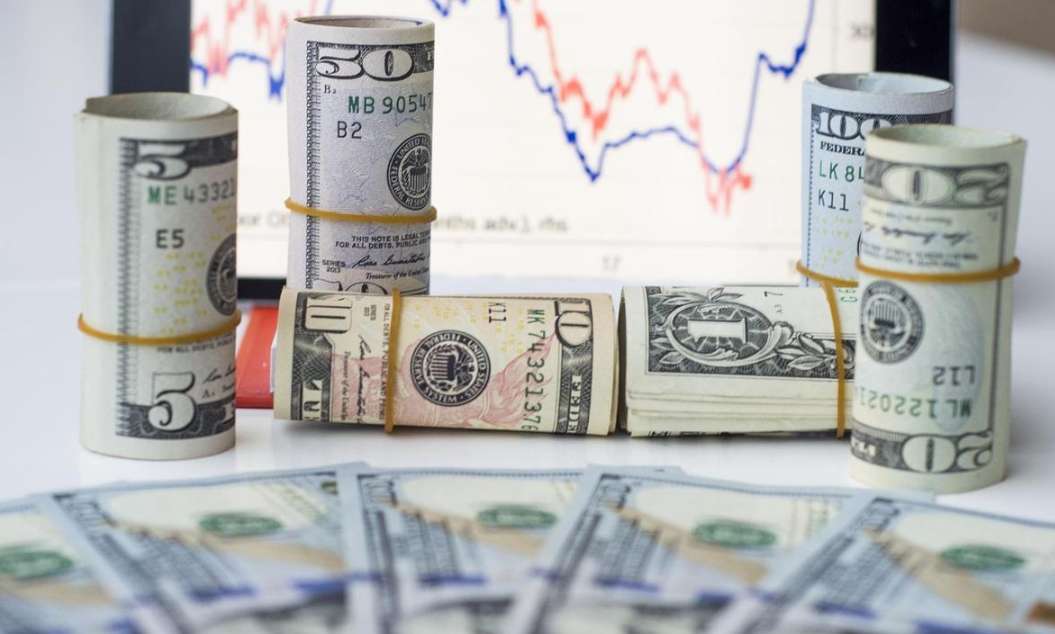RMB Overtakes Euro as No. 2 Global Currency
Advertisements
As the intricate dance of global finance continues to unfold, sweeping changes ripple through every corner of the world. The descent of the United States into an economic twilight, coupled with China's audacious rise, paints a picture of an evolving landscape in international relations and monetary power.
The palpable anticipation surrounding the inauguration of the United States’ 47th President has captured the attention of the global financial arena. With just five days remaining before the transition, speculation runs rampant about the potential shifts in economic policy. The Democratic Party is leveraging its final moments in power to imprint its economic ideologies, particularly in infrastructure investments and climate cooperation on the international front.
Meanwhile, the international rise of the Renminbi (RMB) is a game-changer. Surpassing the Euro with a newfound market share of 6.4% in global trade, the RMB has indubitably marked a seismic shift in international currency dynamics. This milestone not only signifies the RMB's emergence as the second-largest international trade currency but also serves as a testament to China's growing economic clout.
The groundwork for this transformation was not laid overnight. China’s steadfast commitment to economic reform and opening up has sustained its growth trajectory. With a stable, high-growth GDP consistently increasing its share of the global economy, the international market's confidence in the Renminbi has been solidified. However, this rise comes at a time when the Dollar is facing a decline in its dominance, with its reserve share dropping below 57.4%, according to the International Monetary Fund.
Countries worldwide are increasingly reassessing their reliance on the Dollar, seeking diversifications in their asset allocation strategies. This trend becomes particularly significant when we examine the evolving landscape of trade tariffs under the incoming administration. The proposed strategy of incrementally raising tariffs by 2%-5% each month aims to cushion the domestic economy from sudden inflation spikes while simultaneously altering trade dynamics.

The announcement of this tariff policy ignited immediate reactions across global markets. The offshore Renminbi surged within days, bolstered by burgeoning investor confidence fueling substantial capital inflows into China’s stock markets. The A-share market rallied impressively, with the Growth Enterprise Market Index revealing an increase exceeding 4%, powered particularly by technology and renewable energy sectors.
Conversely, Wall Street's reaction painted a cautionary tale. The concern centers on how escalating tariffs could complicate the Federal Reserve's monetary policy adjustments, potentially jeopardizing efforts to stabilize prices and optimize employment against the backdrop of rising production costs.
The RMB's ascendance over the Euro showcases its increasing utility in international trade. With approximately 30% of cross-border transactions denominated in RMB, a growing number of companies in various sectors are opting to use it as their settlement currency. This trend signifies not only a reduction in transaction costs but also a strengthening of trade relations between China and its trading partners.
In the realm of energy trade, a discernable shift is underway as countries grapple with the idea of de-dollarization. The recent agreements between India and Russia to engage in oil transactions in Rubles disrupt longstanding protocols favoring the Dollar, facilitating new pathways for energy trading. This collaborative approach introduces an innovative paradigm for settling trades and prompts other nations to consider similar strategies.
Simultaneously, there is an upward trajectory of central banks increasingly diversifying their reserves by augmenting their gold holdings from 10% to over 16% since 2018, reflecting a keen awareness of the need for stability and security in their asset management strategies.
This progressive delineation of currency utilization marks a broader pattern of globalization transitioning toward a multipolar framework. As alternative currencies rise in status, including the RMB and Euro, countries are actively pursuing a diversified portfolio to safeguard against global economic shifts.
The incoming administration in the United States faces a labyrinth of economic challenges stemming from this evolving geopolitical landscape. Although imposing tariffs may yield immediate benefits such as a stronger Dollar and market vibrancy, these strategies risk alienating global trading partners, compelling them to pivot towards alternative markets.
In China, a calculated response to the U.S. policy shift underscores its robust strategic fortitude. Investors are drawn to the allure of the upward-shifting Renminbi as a bolstering force for returns. Simultaneously, the People's Bank of China is expanding the reach of its cross-border RMB payment systems, enhancing the currency’s facilitation in international transactions while inviting international investors to stake a claim in Chinese markets.
In this delicate dance of the markets, U.S. equities and bonds may experience short-term rebounds, yet deeper structural challenges linger as the Federal Reserve navigates the complexities imposed by heightened tariffs. The volatile interplay of domestic policy and foreign currency reliance continues to amplify the tension between maintaining economic momentum and safeguarding international relations.
The intersection of high tariff policies and the global inclination towards de-dollarization is swiftly steering nations away from the Dollar, unveiling transformative shifts in reserve management and trade structures. In this rapidly pivoting economic landscape, the longstanding hegemony of the Dollar faces unprecedented challenges.
As the global momentum towards the internationalization of the Renminbi accelerates, a reconfiguration of the existing monetary structure gradually emerges. Nations are increasingly settling trades and managing reserves with the RMB, fostering a balanced and diversified currency ecosystem.
Ultimately, the impending inauguration marks a critical juncture in the continuously evolving dynamics of global finance. The rise of the Renminbi alongside the ramifications of the new tariff policy underscores the deepening complexities inherent in the financial rivalry between China and the United States. As the U.S. grapples with its economic dualities, China, through vigorous financial strategies, navigates toward a more prominent position within the global financial landscape.